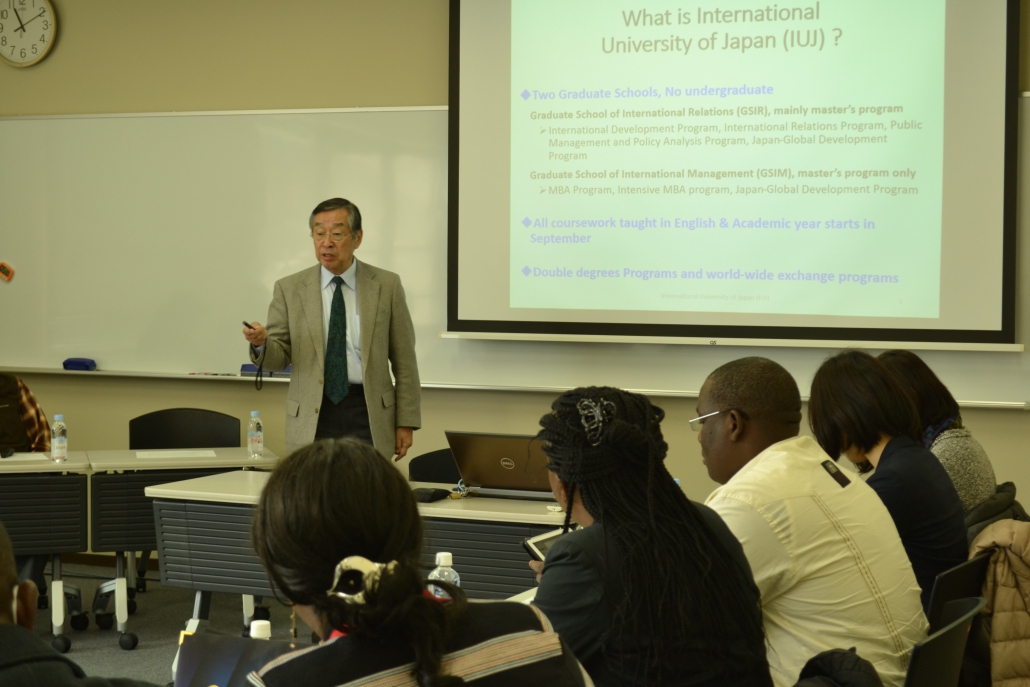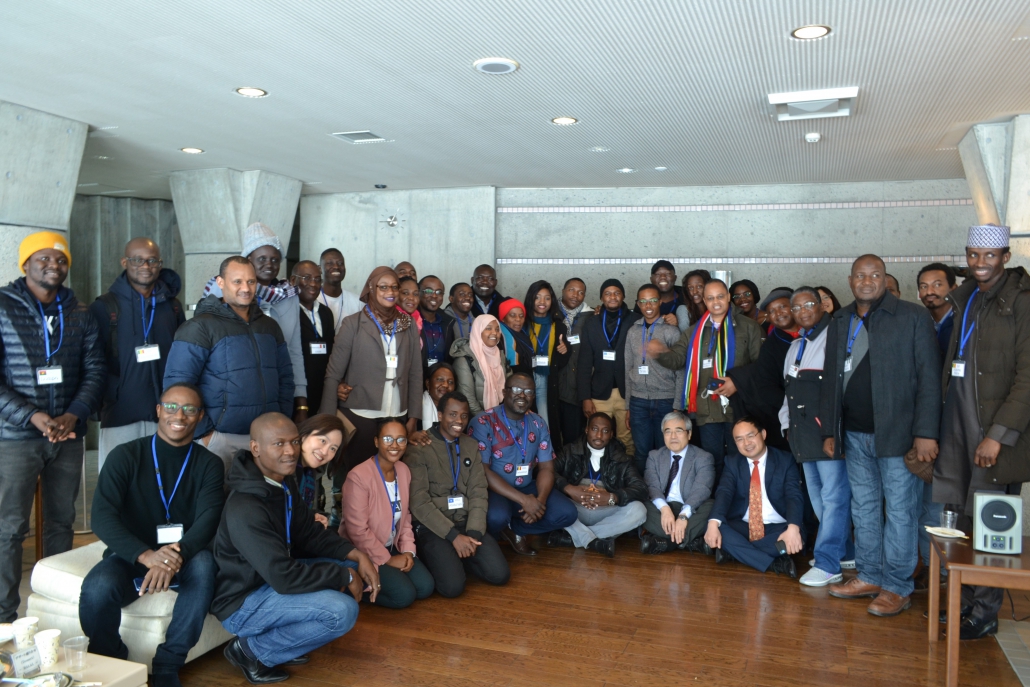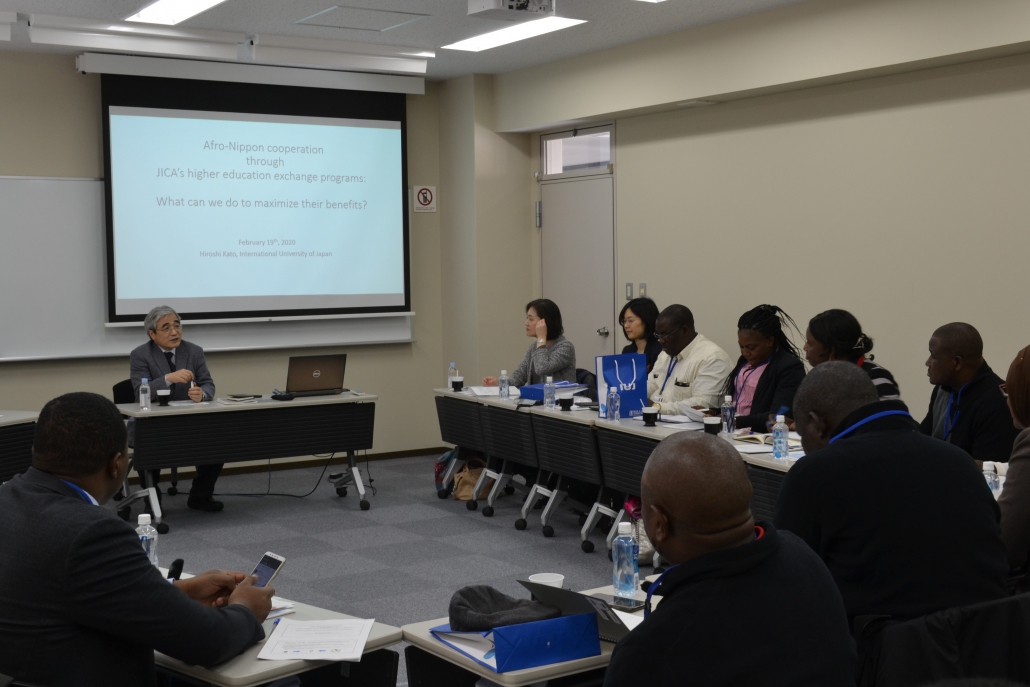Policymakers from 13 African countries visit IUJ
On February 19, 2020, thirteen government officials (Director Generals, Section Chiefs, etc.) from 13 African countries (South Africa, Niger, Mozambique, Zambia, Malawi, Ivory Coast, Nigeria, Tanzania, Burkina Faso, Senegal, South Sudan, Democratic of Congo and Rwanda) visited IUJ at the Invitation of JICA.
This visit will encourage policymakers of the African region to deepen their understanding of JAPAN’s ODA, JICA’s study abroad programs, the JICA Development Study Program and its partner universities’ educational content and the system of accepting international students. It was conducted with the expectation that JICA international students’ projects will be used strategically to develop human resources necessary for the development of each country.
At IUJ, President Dr. Hiroyuki Itami gave a welcome greeting and an overview of the university, followed by Dr. Myoe Maung Aung, Dean of the Graduate School of International Relations, and Dr. Li Wenkai, Dean of the Graduate School of International Management, to explain the education offered by each graduate school. After that, Ms. Shinoda Gretchen, Manager of the Office of Student Services explained IUJ’s system for accepting international students, and all members of the group had a question-and-answer session.
[President Itami gives an overview of IUJ’s and its characteristics]
At lunchtime, IUJ hosted a luncheon party with IUJ students from the African region at the Research Institute lounge, where the visiting policymakers deepened their interaction with the students and university officials.
[Visiting group and current IUJ students at the luncheon party]
In the afternoon, after taking a campus tour, they participated in a lecture and discussion on the cooperative relationship between Japan and Africa through Japan’s ODA and JICA study abroad projects by Professor Hiroshi Kato of the Graduate School of International Relations.
Prof. Kato said at the end of the lecture that Japan is an important country for young elite students to study abroad, and asked that the participants guide those who wish to study abroad to choose the right university. The delegation expressed their desire to interact with IUJ and universities in Africa.
[Lecture by Prof. Kato]
After visiting IUJ, they visited the living environment of international students, such as the core regional hospitals and supermarkets, then returned to Tokyo, where they were staying.
IUJ believes that this was a very important opportunity for policymakers of governments to take a first-hand look at the university’s educational offerings, its characteristics, and its system for accepting international students, and to be aware that IUJ will continue to actively accept JICA students. IUJ will aim to contribute to human resource development in Africa.
President’s Office





